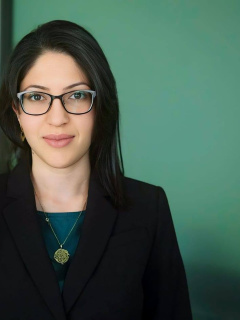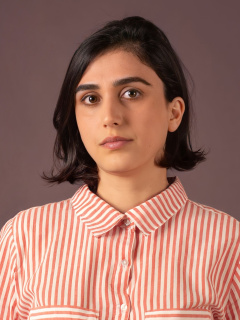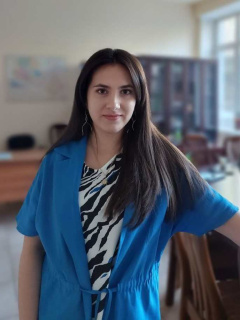Dates
General information
Project Description
This research delves into the perception of belonging in imperial contexts within the Ottoman and Russian empires, focusing on non-dominant ethno-religious groups living in both empires, Christians, predominantly Armenians, and Muslims, primarily from the Caucasus region.
In contrast to prevailing historiography, this project adopts a bottom-up perspective, exploring the history from the viewpoint of empire subjects. While most of the research in the field focuses on how imperial governments managed the state, overlooking the intricate dynamics between the state and its subjects, this project aims to uncover history from the grassroots level. Using published and unpublished primary sources in Armenian, Russian, Ottoman Turkish, and Arabic, the project investigates imperial nation-building dynamics from the late 19th century to the first two decades of the 20th century.
Our hypothesis posits that in empires where the dominant religion aligns with that of the ethno-religious group, elites from non-dominant groups feel secure adopting the imperial identity while also maintaining their own.
Project Aims and Objectives
How did non-dominant ethno-religious groups locate themselves in the context of neighbouring empires? This question has always been approached from the viewpoint of the policy of rivalry between the Ottoman and Russian Empires.
In our research project, we have chosen to investigate non-dominant ethno-religious groups as compelling case studies. Specifically, we will focus on two distinct categories. Firstly, we will delve into the experiences of non-dominant Christians, predominantly Armenians within the historical contexts of the Ottoman and Russian Empires. Secondly, our attention will be directed towards non-dominant Muslims, primarily from the Caucasus region, including Caucasian Tatars and Muslims of the North Caucasus. In the case of Muslims, we also will consider the case of the Ottoman Muhājirs (Muslim emigrants from the North Caucasus) to have Muslim non-titular ethno-religious groups in both empires. By exploring these groups, we aim to shed light on the intricate dynamics of imperial nation-building, and self-perception and identity of these groups within the comparative framework of the Ottoman and Russian Empires. The rationale behind selecting these groups lies in their shared historical existence within the territories of both empires, as well as their common status as non-dominant ethno-religious entities. This approach allows us to unravel nuanced narratives surrounding identity formation and self-perception among communities that navigated the complex socio-political landscapes of the Ottoman and Russian Empires.
To study how the imperial centres attempted to integrate these groups to their imperial context, and how these groups perceived and acted upon the idea of civic identity we chose intellectual elites who were trying to cautiously adjust and adapt diverse ideologies with the mainstream ideology of the empire.
For the Ottoman Armenian case we consider the Armenian intellectual elite of Constantinople and Van that includes intellectuals, state officials and clergymen. Similarly, when examining the intellectual elite of the Russian Armenians, we analyse the same stratum as in the case of the Ottoman Armenians. The geographic scope of the Russian Armenian elite includes Petrograd and Caucuses (Yerevan, Baku and Tbilisi).
As for the case of the Muslims of the Caucasus, we will focus on the Muslim intellectuals of the South and the North Caucasus. In the case of the North Caucasus intellectuals, we will also focus on those who preferred living inside the territories of the Shamil’s Imamate and those who actively criticized the Imamate, to show different trajectories of the attitude towards the struggle against and coexistence with the Russian existence in the Caucasus. To show this contrast, we will also investigate the Ottoman Muhājirs who left their homes for the Ottoman empires. These Muhājirs perceived the Ottoman Empire as Dar al-Islam (lands where the life is organised in accordance to the Shari‘a law) and were highly motivated to become part of it. We aim at finding out whether the Muhājirs became dominant as Muslims in the Ottoman Empire or whether they were still treated with suspicion by the ruling cycles.
The aim of this project is twofold. First, we seek to break out of the confines of the academic ghetto with its specialised research, parcelled out areas of expertise, and built-in disincentives to either change or extend the specialty fields. Second, by crossing traditional academic boundaries and engaging with a topic of such breadth we offer far-reaching comparisons of the formation and fluctuations of the concepts of belonging to the Imperial nation among these ethno-religious groups of discussed empires. We will trace the story of how representatives of these ethno-religious groups, situated within and between two empires, identified themselves within the imperial context and reality.
The research project will tackle the following interrelated questions: How did the Ottoman and Russian Christians and Muslims of the Caucasus and Muhājirs living under the rule of Muslim Sultan and Christian Tsar receive, articulate, and appropriate the imperial situation that radiated from Petrograd (Saint Petersburg) and Constantinople (Istanbul) to peripheries? What were the internal dynamics of developing nationalism among the non-dominant ethno-religious groups and why was that process evaluated in a certain way? Were the ethno-religious/national and imperial identities mutually exclusive or did they complement each other? What visions of the future for the empires did these groups formulate on the basis of the available conceptual arrays? Who played the role of the elite of these groups? Whom did the imperial governments choose as intermediaries, and if they became agents for imperial policy? How did the political discourse of being or becoming part of the empires develop and alter?






